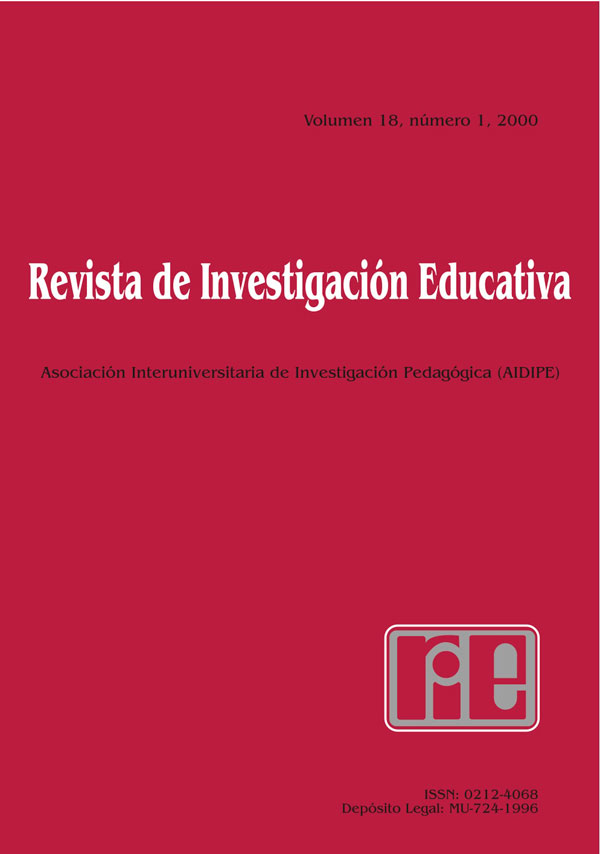Autoconcepto, autoestima y rendimiento académico en alumnos de 4º de E.S.O. Implicaciones psicopedagógicas en la orientación y tutoría
Abstract
This work shows the relationships and the relative weight that given variables antecedents of the self-concept maintain on the global self-esteem in pupils of fourth course of Obligatory Secondary Education. Also they are analyzed the relationships that given pedagogic and psychological variables have on the scholastic achievement.
A hundred twenty pupils formed part of this research. The instruments elaborated by S. Harter and used in this work were: the «Self-Perception Profile for Adolescents» (1988), that it measures variables of self-concept and self-esteem; the «Social Support Scale for Children» (1985); the «Scale of Intrinsic versus Extrinsic Orientation in the Classroom» (1980); the «Inventory of Study Habits» of F.F. Pozar (1983); a measure of the intelligence (Cattell, 1989); the daily study hours, and the achievement in the 1ª, 2ª and 3ª evaluation in the own matters of this educational level.
The analysis effected by the statistic program BMDP shown some results that tend to coincide with the proposed by Harter, and provide interesting very useful suggestions to generate investigation strategies and of intervention in this field.
Downloads
-
Abstract10363
-
PDF (Español (España))12574
The articles and scientific documents published in RIE abide the following conditions:
1. The Servicio de Publicaciones de la Universidad de Murcia (the publisher) has the property rights (copyright) of all the documents published and allows the reuse under the user’s license indicated in point 2.
2. All documents are published in the digital edition of RIE under a Creative Commons Reconocimiento-NoComercial-SinObraDerivada 4.0 Internacional. (legal document) license. These documents can be copied, used, distributed, communicated and explained publicly if: i) the author(s) and its original source of publishing (magazine, publisher and URL of the document) are cited; ii) it is not used for commercial purpose; iii) the existence and the specifications about this license are mentioned.
3. Auto-archive’s conditions. The authors are allowed and encouraged to digitally distribute the pre-print versions (a version before evaluation) and/or post-print (a version that it is already evaluated and accepted to its publication). This promotes circulation and distribution earlier and can increase the citations and significance within the academic community.










